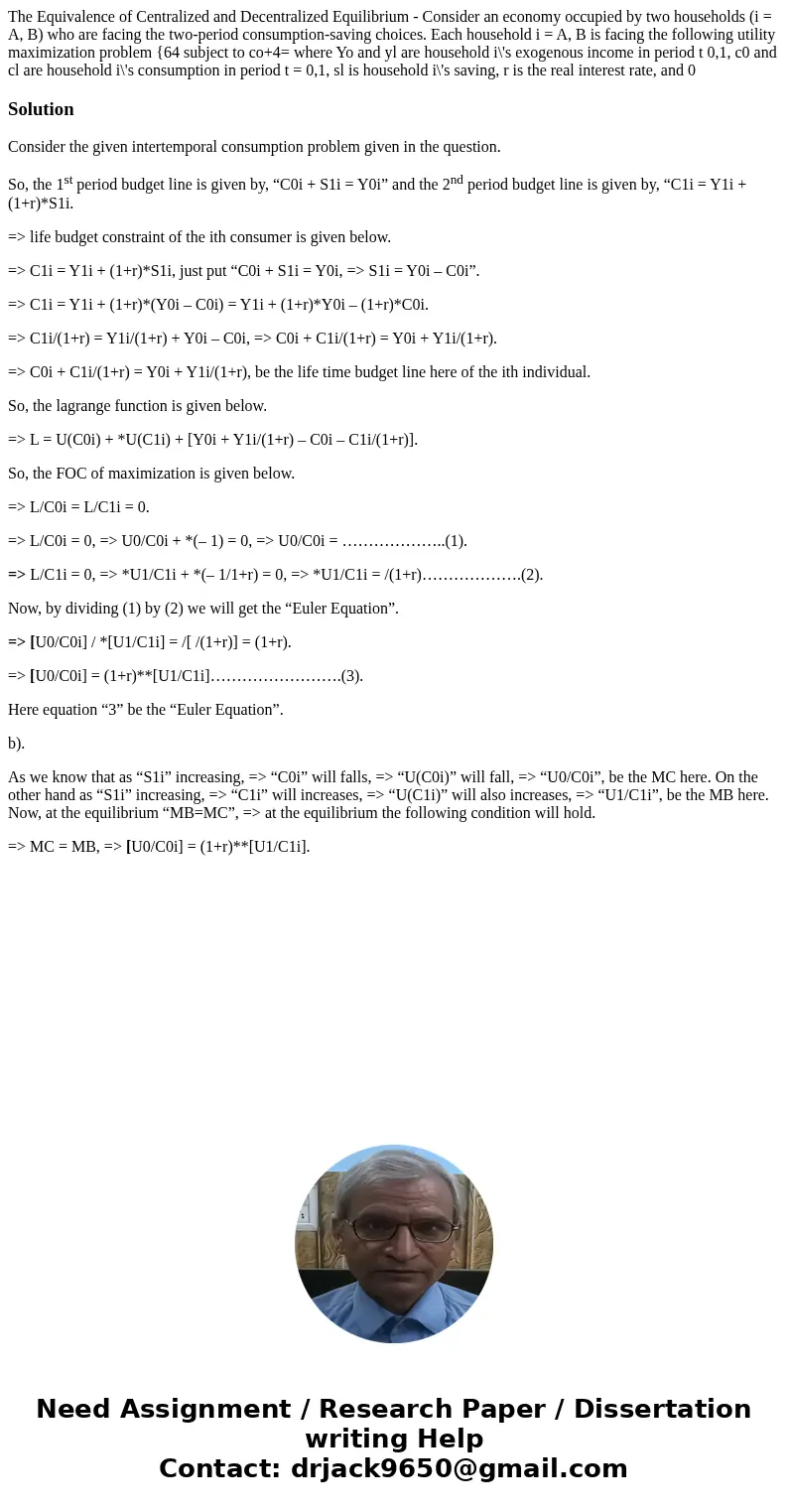The Equivalence of Centralized and Decentralized Equilibrium
Solution
Consider the given intertemporal consumption problem given in the question.
So, the 1st period budget line is given by, “C0i + S1i = Y0i” and the 2nd period budget line is given by, “C1i = Y1i + (1+r)*S1i.
=> life budget constraint of the ith consumer is given below.
=> C1i = Y1i + (1+r)*S1i, just put “C0i + S1i = Y0i, => S1i = Y0i – C0i”.
=> C1i = Y1i + (1+r)*(Y0i – C0i) = Y1i + (1+r)*Y0i – (1+r)*C0i.
=> C1i/(1+r) = Y1i/(1+r) + Y0i – C0i, => C0i + C1i/(1+r) = Y0i + Y1i/(1+r).
=> C0i + C1i/(1+r) = Y0i + Y1i/(1+r), be the life time budget line here of the ith individual.
So, the lagrange function is given below.
=> L = U(C0i) + *U(C1i) + [Y0i + Y1i/(1+r) – C0i – C1i/(1+r)].
So, the FOC of maximization is given below.
=> L/C0i = L/C1i = 0.
=> L/C0i = 0, => U0/C0i + *(– 1) = 0, => U0/C0i = ………………..(1).
=> L/C1i = 0, => *U1/C1i + *(– 1/1+r) = 0, => *U1/C1i = /(1+r)……………….(2).
Now, by dividing (1) by (2) we will get the “Euler Equation”.
=> [U0/C0i] / *[U1/C1i] = /[ /(1+r)] = (1+r).
=> [U0/C0i] = (1+r)**[U1/C1i]…………………….(3).
Here equation “3” be the “Euler Equation”.
b).
As we know that as “S1i” increasing, => “C0i” will falls, => “U(C0i)” will fall, => “U0/C0i”, be the MC here. On the other hand as “S1i” increasing, => “C1i” will increases, => “U(C1i)” will also increases, => “U1/C1i”, be the MB here. Now, at the equilibrium “MB=MC”, => at the equilibrium the following condition will hold.
=> MC = MB, => [U0/C0i] = (1+r)**[U1/C1i].

 Homework Sourse
Homework Sourse